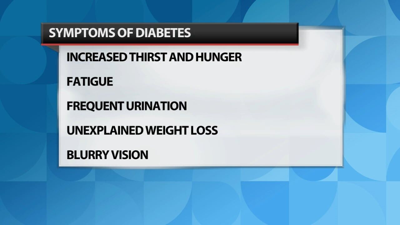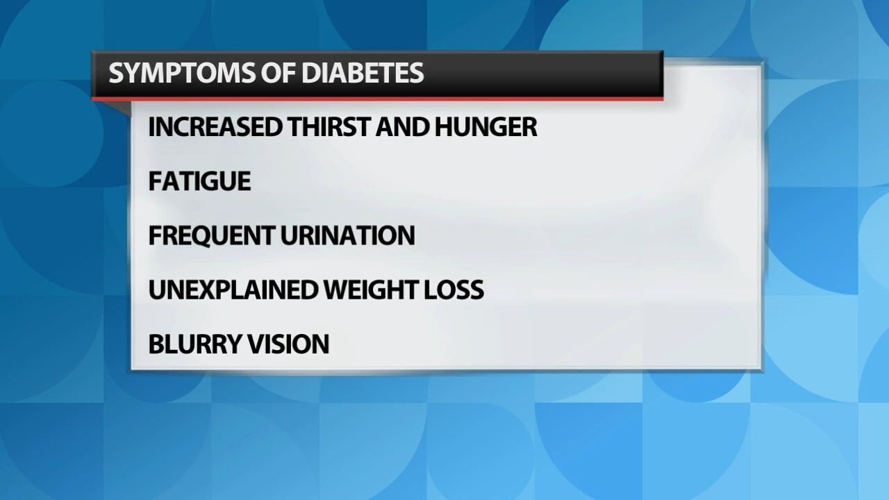LOUISVILLE, Ky. (WDRB) -- Tuesday is World Diabetes Day, and November is Diabetes Awareness Month. About 5 million people in the United States are expected to be diagnosed with Type 1 Diabetes by 2050.
Diabetes can be a difficult disease to manage, regardless of age, and it impacts your lifestyle and overall health.
Dr. Sara Watson with the Wendy Novak Diabetes Institute joined WDRB Mornings on Tuesday to bring more focus on this life-changing disease.
There are two types of Diabetes: Type 1 and Type 2. Type 1, commonly called juvenile diabetes, is when the pancreas creates little to no insulin. Type 2 diabetes is when your body doesn't make enough insulin or rejects it.
"Diabetes is when your body can't use all of the sugar," Watson said. "So some of that stays in your blood, and it can happen for a couple of different reasons. With Type 1 Diabetes, it happens because the immune system, which usually fights disease, starts attacking the cells in the body that make insulin. So you aren't able to make insulin to use that sugar for energy. With Type 2 Diabetes, the insulin doesn't work as well. Your body doesn't listen to it as well, but you're still able to make it."
Watson said the approach to treatment continues to evolve.
"One of the important things about this disease is how we treat it changes so quickly," Watson said. "And this is a great opportunity for us to talk about some of those advances so people living with diabetes know what the latest options are. And also for people that haven't been diagnosed so they're aware of the symptoms in case they start developing those."
Watson said some symptoms of diabetes include increased thirst and urination, unintentional weight loss, feeling tired, dry skin and numbness in the hands and feet.
For treatment, Watson said "there are a couple of different options, especially for Type 2 Diabetes, where we can give you medications to help you use insulin better. With Type 1 Diabetes, the mainstays is we put you on insulin and give you back what your body can't make on its own."
Recent breakthroughs have lessened the burden on people with diabetes. "One of the coolest ones we've had in the last few years is actually a system where you wear two devices: one device that gives you insulin and another device that tells you what your blood sugar is and kind of reads it continuously. And when those two devices talk to each other, they can mimic what your pancreas should be doing. So as your blood sugar goes up it gives you more insulin to help keep those things under control, and as your blood sugar goes down it gives you less."
Making diet and lifestyle changes can be a very important part of treating Type 2 diabetes. For Type 1 Diabetes those changes will help manage and treat the symptoms, but they won't eliminate the disease.
Copyright 2023 WDRB Media. All Rights Reserved.














